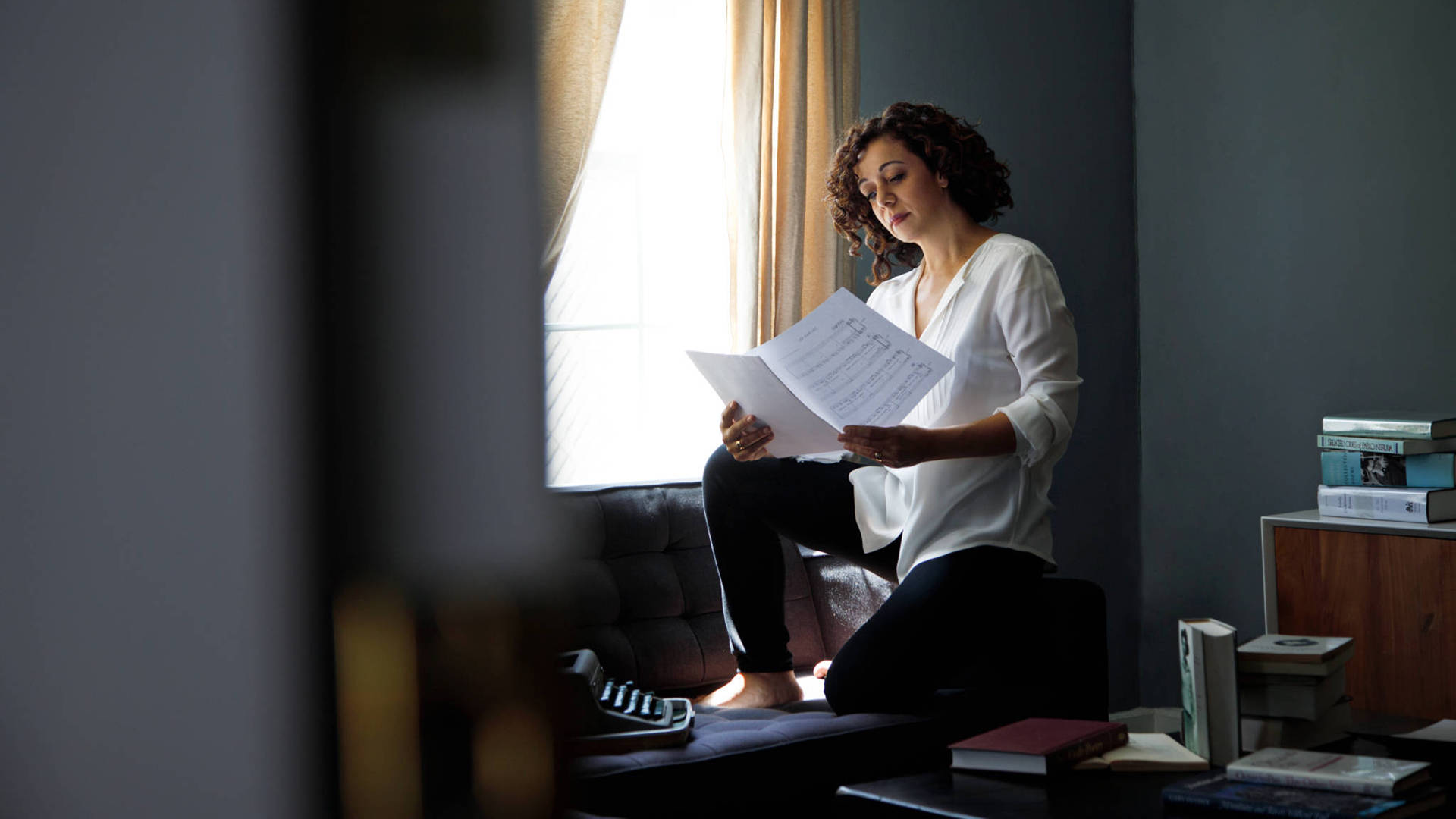Souza was raised on poetry and music: she’s the daughter of poet and songwriter Tereza Souza and foundational bossa nova guitarist, singer and composer Walter Santos. She says, however, that she was slow to realize she was pursuing the family business. “Year to year I didn’t feel it, but now at 52, looking back, I see the foundation and roots buried very deeply in me,” Souza says in a phone interview from the Venice, Calif. home she shares with her husband, Larry Klein, who produced the album. “It grew slowly from the first attempt, the Elizabeth Bishop recording. After Neruda, Tide in 2009 had e.e. cummings, and I did something with Gary Snyder. But The Book of Longing is my most definitive record about poetry—my statement about my love of words.”
Released in August on Sunnyside Records, The Book of Longing arrived at an extraordinary moment in contemporary jazz that Souza helped architect. The scene is brimming with poetry-entwined projects: drummer Matt Wilson paid homage to a late, great 20th-century American poet on Honey and Salt: Music Inspired By the Poetry of Carl Sandburg (Palmetto) in 2017; Jane Ira Bloom interpreted Emily Dickinson’s words with soprano saxophone on Wild Lines: Improvising Emily Dickinson (Outline) the same year. Jazz Institute of Chicago commissioned flutist Nicole Mitchell and Chicago poet Haki Madhubuti to collaborate on the politically-charged Liberation Narratives (Black Earth Music); Fresno saxophonist Benjamin Boone documented of his creative partnership with Pulitzer Prize-winning poet Philip Levine on The Poetry of Jazz (Phrase Records).
Oakland reed expert Sheldon Brown just released Blood of the Air (Edgetone Records), a singular album featuring his inventive songs based on poetry by Philip Lamantia. And New York pianist Helen Sung will soon arrive in the Bay Area for a series of performances focusing on her new album Sung With Words: A Collaboration with Dana Gioia (Stricker Street Records).
Sung’s longtime friendship with Sonoma resident Gioia, who is the former chairman of the National Endowment For the Arts (2003-2009) and California State Poet Laureate, led to a songwriting partnership—a new endeavor for him and Sung. With the support of a 2014 Chamber Music America grant, they embarked on an extended experiment, “doing whatever worked,” says Sung, who settles into the University of the Pacific’s Brubeck Institute for a three-day Stockton residency on Nov. 29. Her band with vocalist Christie Dashiell, saxophonist John Ellis, bassist Joe Martin and drummer Rudy Royston also performs Sung With Words material on Dec. 2 for Healdsburg Jazz at the Paul Mahder Gallery and Dec. 6 at Kuumbwa Jazz Center.
“I wanted to write music that was fun to listen to, with melodies that are accessible and hummable,” Sung says. “I set some of his poems, and he wrote a piece based off of a rhythm that I had played. The last track came from when I was talking to a friend and I said ‘I wish people would just say what they mean and mean what they say.’ I called up Dana and asked ‘Can you make a poem out of this?’ And it became a song. ‘The Stars on Second Avenue’ is a tribute to Tin Pan Alley. I worked so hard on that one. I have such respect for Dana. I not only want to write great music, but something that’s truly me.”
Sung With Words is sui generis, but it’s also part of a jazz zeitgeist. The question is, why is this happening now? While jazz musicians still mine the American Songbook for material, there’s a relentless search for new concepts to explore and interpret. Poetry, new and old, provides a huge reservoir of text ripe for musical treatment, confounding old stereotypes.
“When I would tell people about the project that’s what they thought it was, some kind of Beatnik recital,” Sung says. “No, these are songs. There’s so much interesting work being created now. It reminds me of a book I read about discovery of the DNA double helix, with several teams making groundbreaking discoveries at the same time. Jazz artists are always looking for the next thing to feed their growth as an artist.”


